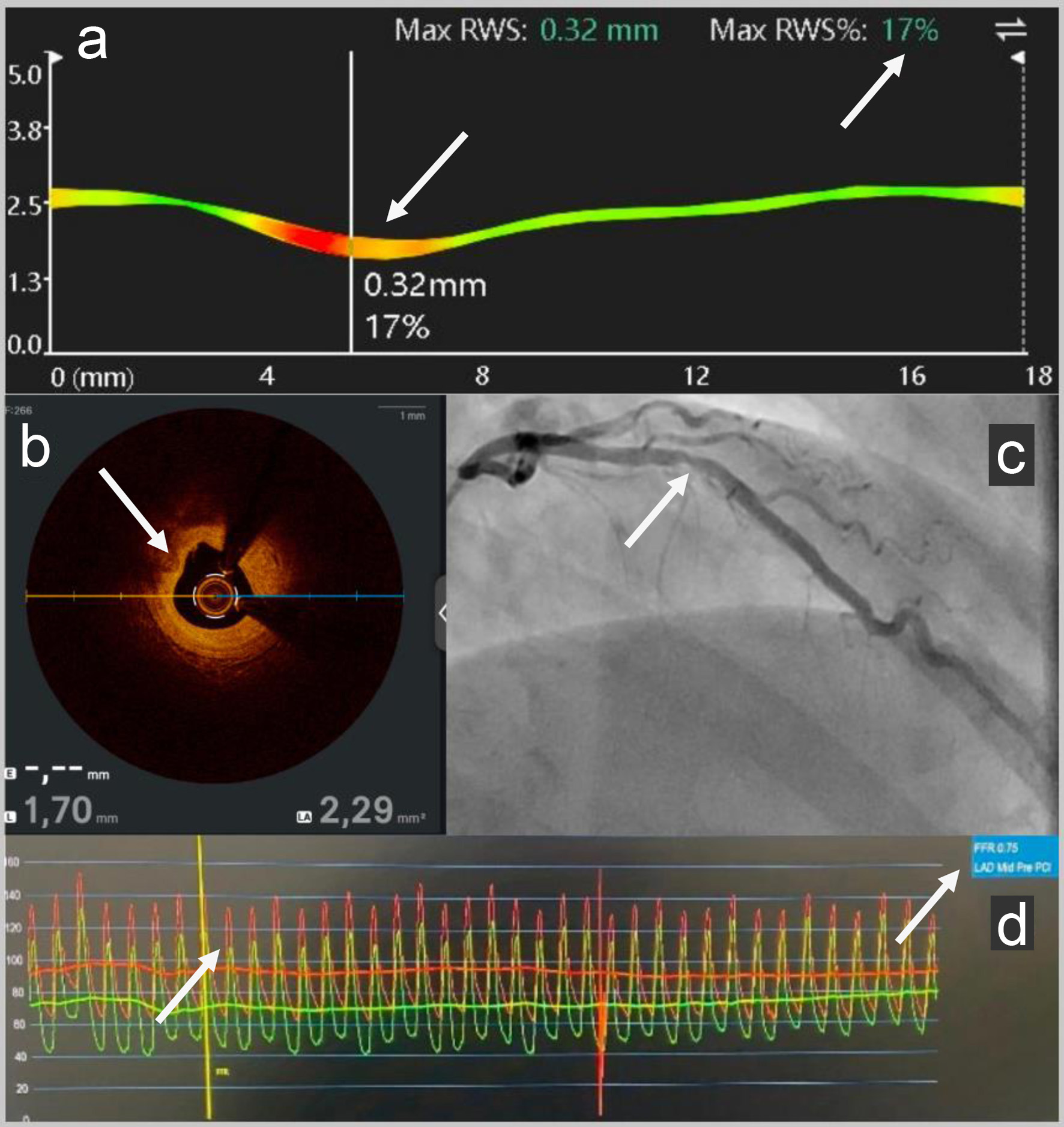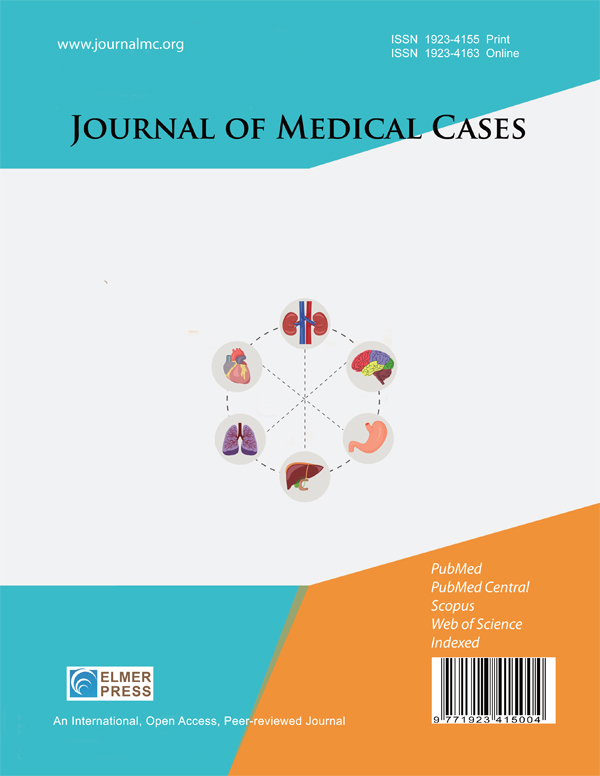Persistent Impairment of Coronary Microvascular Dysfunction After Percutaneous Coronary Intervention in an Ice Swimming Champion
DOI:
https://doi.org/10.14740/jmc5150Keywords:
Coronary microvascular dysfunction, Percutaneous coronary interventionAbstract
Coronary microvascular dysfunction (CMD) is a recognized cause of persistent angina post-percutaneous coronary intervention (PCI), especially in patients without epicardial coronary stenosis. We report a case of a 58-year-old top-level sportsman and world champion ice swimmer with persistent dyspnea despite successful PCI for a mid-left anterior descending artery lesion. Follow-up angiography with optical coherence tomography showed no in-stent restenosis with good stent apposition. Angiography-derived microcirculatory resistance (AMR, Pulse Medical) and cardiac magnetic resonance imaging revealed CMD as the underlying etiology. This case demonstrates the utility and feasibility of AMR in identifying CMD post-PCI and supports its use in the diagnostic workup.

Published
Issue
Section
License
Copyright (c) 2025 The authors

This work is licensed under a Creative Commons Attribution-NonCommercial 4.0 International License.









